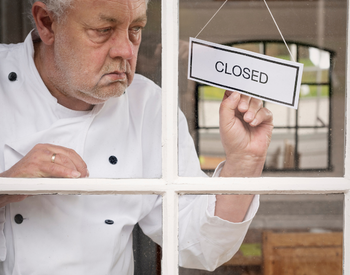No one wants to think about a recession, let alone prepare for one. But if you're in the restaurant business, it's something you need to be aware of. A recession can seriously impact your business, and it's essential to be prepared. Here are some answers to commonly asked questions about recessions and tips on preparing your restaurant for a recession.
What Is An Economic Recession?
An economic recession is a decline in economic activity over a period of time. This can be due to a number of factors, including a decrease in consumer spending, an increase in unemployment, and a reduction in business investment. A recession can have a significant impact on businesses, particularly small companies.
Do Restaurants Do Well In A Recession?
There is no definitive answer when it comes to whether or not restaurants do well during a recession. In some cases, restaurants may be forced to close their doors if business slows down too much. However, in other cases, restaurants may be able to find ways to stay afloat by offering affordable menu options and discounts. Ultimately, it depends on the specific restaurant and how well it can adapt to changing economic conditions.

How Can A Restaurant Be Recession-Proof?
There's no such thing as a recession-proof business, but there are steps you can take to help weather the storm:
1. Take Steps To Cut Costs And Increase Efficiency
When a recession is on the horizon, it's essential to cut costs and increase efficiency. This will help to ensure that your restaurant can come out ahead. There are a few key areas to focus on when cutting costs:
- Review your purchasing practices: Seek out discounts on food and supplies where possible.
- Streamline your cooking process: Make sure that all kitchen tasks are performed as efficiently as possible.
- Purchase in energy-efficient appliances and lighting: Restaurants with that make this investment are able to reduce their energy costs over time.
- Review your menu and pricing: It may be necessary to make some adjustments to ensure that your restaurant can remain profitable during a recession.
- Look over employee hours and wages: If you have more employees than necessary to keep your business operating smoothly, reduce your staff to help cut costs.
2. Focus On Marketing And Promotions To Draw In Customers
One of the most important aspects of running a successful restaurant is marketing and promotions. You need to find creative ways to draw in customers and get them interested in your food. Some common strategies include offering discounts, hosting events, and sending promotional materials.
It's also vital to keep your restaurant's branding consistent across all platforms. Make sure your website, social media pages, and print materials, such as menus, signs, and labels, look professional and convey the same message. This will help create a strong identity for your business and make it more memorable to potential customers.
3. Be Prepared To Adjust Your Menu And Pricing
Restaurants are constantly faced with the challenge of adjusting their menu and pricing to stay competitive in the food industry. In order to stay up and running, restaurants must be willing to change their menus to reflect the latest food trends and offer meals at a price that customers are willing to pay. While some restaurants may be hesitant to make changes, businesses in the food industry must be flexible and adaptable. By proactively adjusting their menus and pricing, restaurants can ensure that they remain profitable and popular among customers.
4. Keep A Close Eye On Your Financials During A Recession
Restaurants and the food industry can be greatly affected by a recession. Closely monitor your finances during a recession and make sure you are making wise decisions with your money. This may mean cutting back on spending, renegotiating leases or contracts, and tightening your budget in other ways. Be proactive in your business planning, and you will be better able to weather any storm.

Nothing Lasts Forever
The duration of a recession varies, but they typically last for several months. According to the National Bureau of Economic Research, the average length of a recession in the United States since World War II has been 10 months. However, some recessions have lasted longer, such as the one that lasted from 2007 to 2009. It is important to be prepared for a recession and take steps to ensure that your restaurant can stay afloat. By taking action now, you can help to ensure that your business is successful during a recession and beyond.






